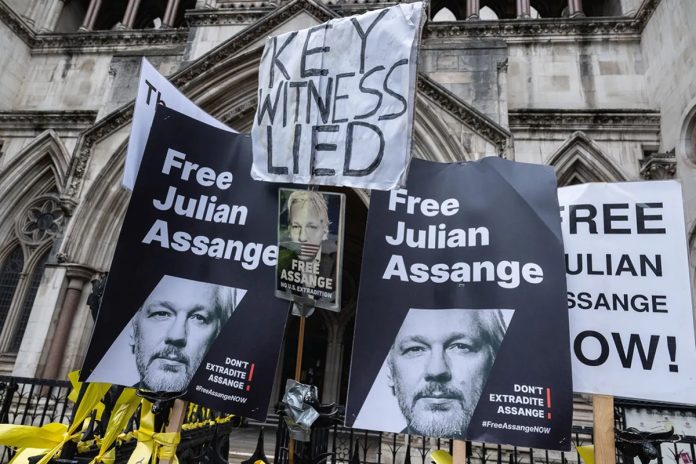Julian Assange, the founder of WikiLeaks, stands at the precipice of a legal ordeal that has captured global attention. With his final appeal against extradition to the United States concluded, Assange’s fate hangs in the balance, with potentially dire consequences awaiting him on American soil.
On February 20 and 21, Julian Assange, the WikiLeaks founder who frustrated the US imperium, its aggrieved national security establishment, and a stable of journalists upset that he had cut their ill-tended lawns, made what has been said to his final appeal to avoid extradition to the United States.
For Assange, the stakes couldn’t be higher. Facing a possible sentence of 175 years stemming from 18 charges, including 17 under the Espionage Act of 1917, the prospect of extradition represents a terrifying prospect. Despite assurances from the US government that he won’t face extreme measures like Special Administrative Measures or placement in ADX Florence, a supermax prison, such promises ring hollow in the face of mounting evidence of political persecution.
Since WikiLeaks published a trove of State Department cables in 2010, Assange and his organization have been in the crosshairs of the US government. From Vice President Joe Biden’s labeling of Assange as a “high-tech terrorist” to the Trump administration’s declaration of WikiLeaks as a hostile intelligence service, Assange has faced relentless pressure and scrutiny.
It may be mentioned here that, since 2010, when some 250,000 State Department cables were published on the WikiLeaks website, both the organization and Assange have been in Washington’s sights.
The campaign to remove Assange from the Ecuadorian embassy, where he sought asylum, culminated in his arrest and subsequent incarceration in Belmarsh prison. Despite being found by the UN Special Rapporteur on torture to have endured psychological torture, Assange remains imprisoned, denied bail and isolated from the outside world.
Legal proceedings have been marred by injustices, with courts dismissing broader concerns of political persecution in favor of US assurances. The recent decision by the Supreme Court to refuse a full review of Assange’s case underscores the uphill battle he faces.
International support for Assange’s release has been growing, with Australian parliamentarians and global lawmakers calling for an end to his persecution. However, geopolitical alliances and obligations have complicated efforts to secure his freedom.
As Assange’s fate hangs in the balance, the implications extend far beyond his personal plight. His extradition would set a chilling precedent for press freedom, sending a message that journalists risk imprisonment for exposing government misconduct.
In the face of mounting challenges, Assange’s supporters continue to rally behind him, advocating for justice and the preservation of fundamental freedoms. As the world awaits the outcome of his final appeal, one thing remains clear: the fate of Julian Assange is a battleground for the future of press freedom and democratic principles.




